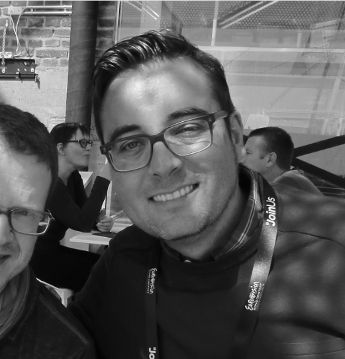What happened at this year’s Eurovision Song Contest? Many visitors who flocked to Malmö for ESC week were eager to experience a delightful and inspiring atmosphere, meet people from all over Europe, and celebrate together, perfectly embodying the official motto, „United By Music.“
Unfortunately, the joy and togetherness were overshadowed by some unusual circumstances, with politics significantly impacting the atmosphere in and around the arena. Demonstrations took place in front of the arena and on the Öresund Bridge, aiming to prevent Israel from participating in the ESC due to the escalation in the Gaza Strip. Even Greta Thunberg joined the demonstrators; her mother, Malena Ernman, sang for Sweden in 2009.
Demonstrations are nothing new when it comes to Eurovision; even in 1975, there were significant protests, though with different motivations. However, this year’s contest saw an unprecedented level of hostility. During rehearsals and live shows, Eden Golan was met with boos and whistles like never before. Even veteran ESC staff remarked that they had never experienced such a hateful atmosphere in an arena that is typically filled with enthusiasm. Spectators were seen covering their ears and wearing sleeping masks during Israel’s performance. Eden Golan required the highest level of security to leave her hotel room and constantly feared for her safety. How did it come to this?
Even other artists displayed their disrespect toward Eden Golan during press conferences and through various other means. While having a political opinion is understandable, when it descends into hate, it crosses a line. Unfortunately, we’ve reached a point where more and more people feel compelled to express their opinions on social media and elsewhere. The trend of taking sides, of being for or against something, has intensified, and it doesn’t spare even a music show, which ideally should unite people regardless of their origin, beliefs, or whom they love.
Reflecting on this year’s Eurovision leaves a disturbing aftertaste. Beyond the disqualification of the Dutch singer, the most significant scandal was the mistreatment of the Israeli singer and delegation. It’s disheartening to witness that nearly 80 years after the Holocaust, Jews and Israelis still require special protection due to the existence of those who harbour dislike towards them.
The atmosphere at this year’s Eurovision Song Contest was so charged that even the ESC supervisor, Martin Österdahl, faced boos while speaking. It’s likely that these reactions stemmed from more than just the disqualification of the Netherlands and the decision to allow Israel to participate amidst political issues.
For future editions of the ESC, there needs to be a better-conceived concept to protect the artists, along with a clear code of conduct for everyone involved, including artists, staff, and visitors. While it may be challenging to ensure fairness, especially considering the subjective nature of reactions to songs and situations, it’s unacceptable for hate directed towards a government to be concentrated on one singer, who ends up bearing the brunt of it. After all, she simply wanted to perform her song.
Share This Story, Choose Your Platform!

As one of the founders of eurovisionlive.com I am responsible for the interviews with the singers and the editorial content. My passion for the Eurovision Song Contest exists since my early childhood. The exotic music, different cultures and languages have given a lot of inspiration to me. Since my very first ESC in Dublin 1994 I particularly appreciate the get together and friendship of all the nationalities and Riverdance was a thrill!








